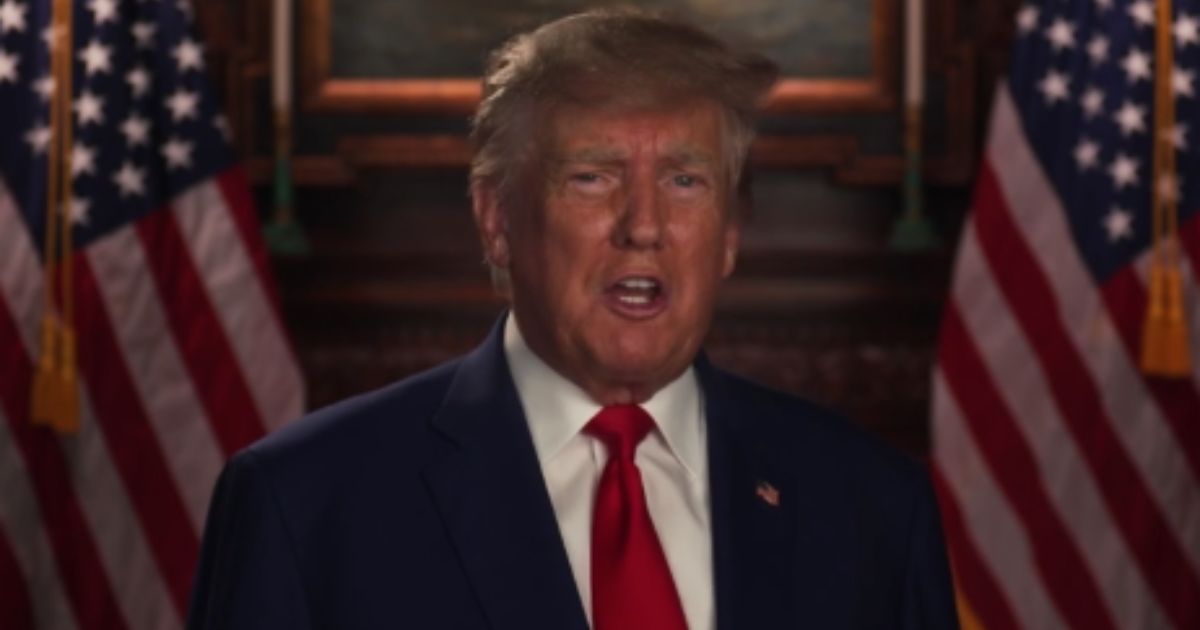Trump declares interest in third presidential term
President Donald Trump sparked controversy during a conversation with NBC News journalist Kristen Welker about his potential future in the White House.
According to The Hill, Trump explicitly stated he was "not joking" about pursuing a third presidential term, defying constitutional term limits and marking his second mention of this possibility in less than three weeks.
During the phone conversation with Welker, Trump emphasized his strong polling numbers, claiming to have achieved the highest ratings of any Republican in the past century. He referenced being "in the high 70s in many polls" and suggested significant public support for his continued leadership.
Trump's Constitutional Challenge to Term Limits
The president's declaration represents a direct challenge to the 22nd Amendment of the U.S. Constitution, which explicitly limits presidents to two terms in office.
This limitation was established to prevent any president from maintaining power indefinitely, following Franklin D. Roosevelt's unprecedented four terms. Trump's assertion about seeking a third term raises significant questions about his interpretation of constitutional boundaries.
When pressed about the mechanics of achieving a third term, Trump alluded to multiple potential strategies. He remained deliberately vague about specific methods, though he acknowledged the existence of various approaches to circumvent the constitutional restriction. His cryptic responses left many political observers questioning the nature of these supposed alternatives.
The discussion took an interesting turn when Welker proposed a hypothetical scenario involving President Vance winning the presidency and then transferring power to Trump. While Trump acknowledged this as one possibility, he tantalizingly suggested the existence of other unspecified methods without elaborating further.
White House Response to Third Term Speculation
White House communications director Steven Cheung attempted to address the growing controversy surrounding Trump's statements.
His response focused on highlighting Trump's current popularity and policy achievements rather than directly addressing the constitutional implications of a third term. The administration's official stance appeared to emphasize immediate priorities over long-term political ambitions.
Trump's comments about a third term were not isolated incidents but part of a pattern of similar statements. The president had previously raised this possibility during a St. Patrick's Day event on March 12, which included prominent figures such as House Speaker Mike Johnson and Ireland's leader, Taoiseach Micheál Martin.
These recurring mentions of a potential third term have generated significant discussion among political analysts and constitutional scholars. The frequency and seriousness of these statements have prompted increased scrutiny of the president's long-term political intentions.
Presidential Power and Constitutional Boundaries
Trump's conversation with Welker revealed a telling interaction regarding the nature of presidential service. When Welker characterized the presidency as "the toughest job there is," Trump responded by expressing his enjoyment of the work, suggesting a personal investment in maintaining his position beyond conventional limits.
During the interview, Trump also deflected questions about potentially passing leadership to Vice President Vance, stating it was "too early to even think about it." This response aligned with his broader pattern of keeping options open while avoiding specific commitments about succession plans.
The president's claims about his polling numbers and popularity among Republicans served as a foundation for his third-term aspirations.
His assertion of unprecedented support levels appeared to suggest that public approval might justify extraordinary measures to extend his presidency.
Current Presidential Situation and Future Implications
President Trump's explicit interest in pursuing a third term has created widespread discussion about constitutional limitations and presidential succession. His conversation with NBC News's Kristen Welker revealed multiple potential strategies for extending his presidency beyond traditional term limits.
The president's statements about serving a third term, combined with his claims of record-breaking popularity and repeated mentions of various methods to achieve this goal, suggest a serious consideration of options for remaining in power beyond constitutional limits.
While the White House communications director emphasized current priorities and popular support, the broader implications of Trump's statements continue to generate significant political and constitutional debate.





